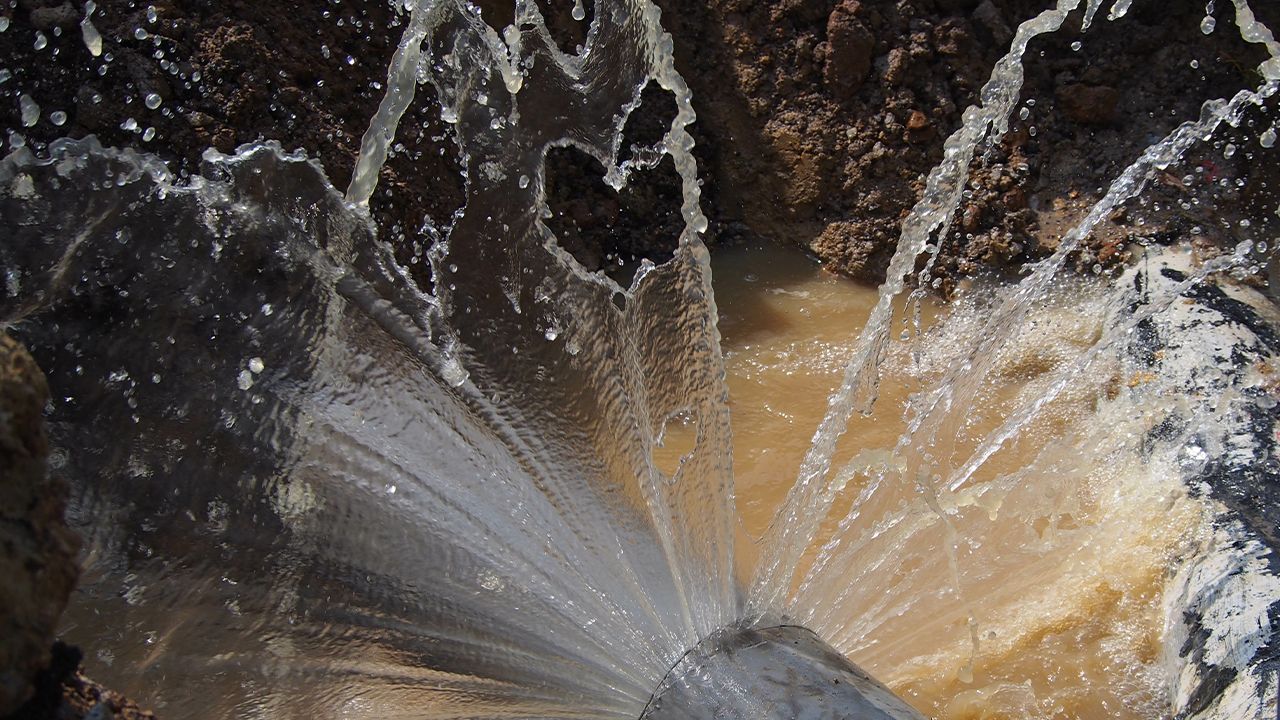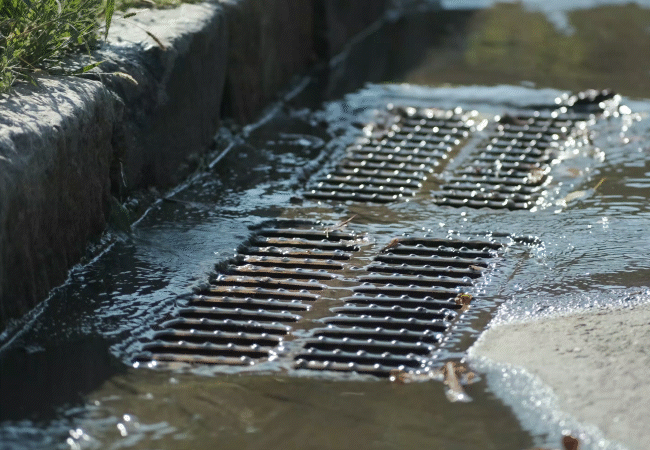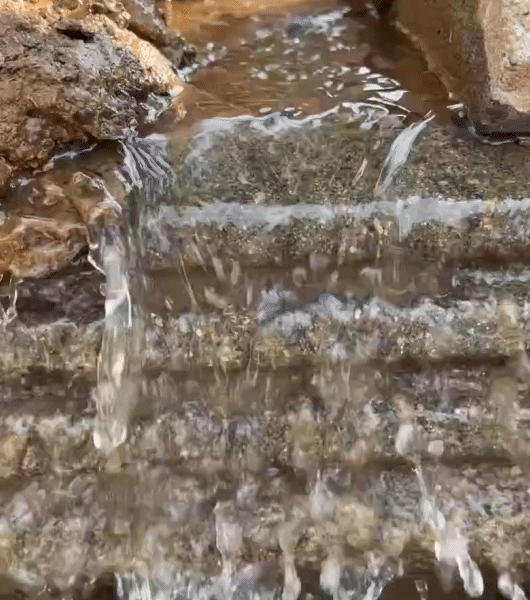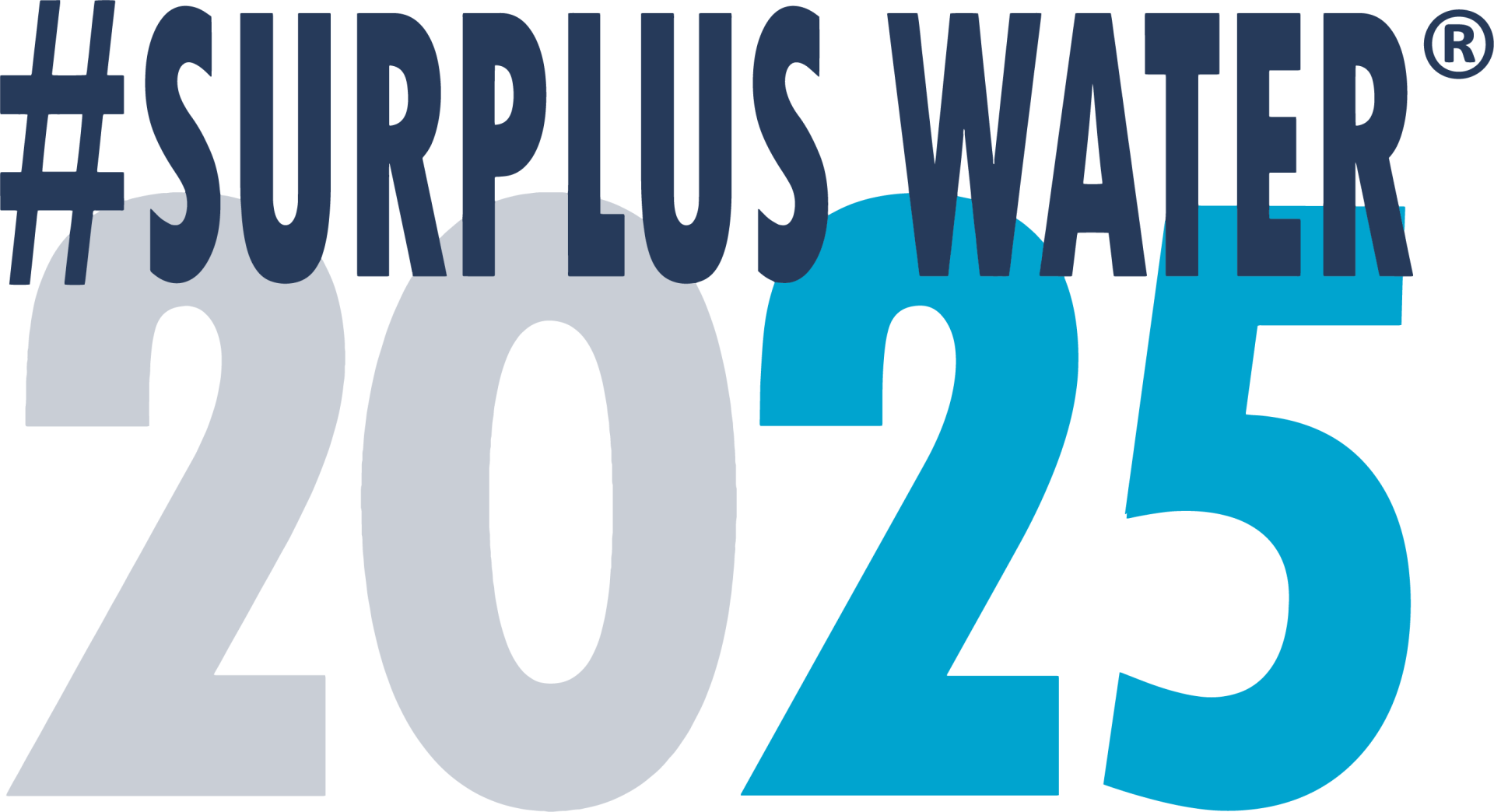The lost drops we choose to ignore
Aldert Brink

What is Non-revenue water?
...and are we doing enough to reduce it.
Non-revenue water (NRW) is the countless kilo-litres of water that go to waste before it even reaches our taps. This can be real or physical losses through leaks, or apparent losses through meter inaccuracies or water theft. The percentage of water loss is different for every municipality, province and country. There are many reasons why water is lost as it journeys through the water network but perhaps the main reasons are unawareness, neglected infrastructure and lack of maintenance. In South Africa an estimated 41% of water demand is non-revenue water. This means that 41% of the water South Africa ‘consumes’ is lost before we even get the chance to productively utilise it.

Let’s focus for a moment on a very small part of water’s journey: from the treatment plant to your tap. In an ideal world, the route is straightforward and if there are losses along the way, it’s easy to think that ‘lost’ water is merely water in a closed system. Any water losses that occur goes back into the cycle via stormwater networks and end up in rivers, dams and ultimately the ocean. Other losses will ‘simply’ replenish our groundwater. Finally, it will magically work its way back to us where we can open a tap and let it run down the drain. So what is the fuzz about?
Take a minute to think about it...
Aside from the obvious - that every drop we spill, will need to get back to the treatment plant (through various complicated processes) and go through the same cycle, only to lose almost half of it again - there are a few other things we need to keep in mind.
1. Pollution.
Oil and heavy metals on road surfaces, rubbish, decaying organic materials and other waste get washed into the network when it rains. Some stormwater can be permanently contaminated by heavily polluted networks. This contaminated water enters rivers, dams and groundwater. Every time water cycles through polluted areas, the water treatment process becomes increasingly difficult.
Oil and heavy metals on road surfaces, rubbish, decaying organic materials and other waste get washed into the network when it rains. Some stormwater can be permanently contaminated by heavily polluted networks. This contaminated water enters rivers, dams and groundwater. Every time water cycles through polluted areas, the water treatment process becomes increasingly difficult.
2. Energy.
It takes energy to treat wastewater, pump groundwater and distribute water back to the consumer. In turn, a considerable amount of water is used to generate electricity. Non-revenue water has a tremendous impact on energy supply and, in South Africa, influences load shedding.
It takes energy to treat wastewater, pump groundwater and distribute water back to the consumer. In turn, a considerable amount of water is used to generate electricity. Non-revenue water has a tremendous impact on energy supply and, in South Africa, influences load shedding.
3. Climate.
Reliance on precipitation to replenish our water sources becomes increasingly challenging with a changing climate and unpredictable weather patterns. Droughts, floods and wildfires are just some of the consequences we see more often, adding immense strain on failing water networks.
Reliance on precipitation to replenish our water sources becomes increasingly challenging with a changing climate and unpredictable weather patterns. Droughts, floods and wildfires are just some of the consequences we see more often, adding immense strain on failing water networks.
4. Survival.
Fresh water is a finite resource. Only 3% of earth’s water is freshwater and of this 3%, less than 1% is available to us. This tiny amount is the very water we are so carelessly throwing about.
Fresh water is a finite resource. Only 3% of earth’s water is freshwater and of this 3%, less than 1% is available to us. This tiny amount is the very water we are so carelessly throwing about.
One can argue that non-revenue water is not a household issue, it concerns water utilities and in theory, this is true. But as water is the one thing we need for our very existence, water waste should be the biggest concern for each one of us. Yes, for the governmental unit, municipality or association, furnishing safe potable water to your community or neighbourhood is the service they should deliver. But each of us has the responsibility of water stewardship. Members of the city council do not necessarily live in your street or drive to your school, work or shopping mall. The unfortunate reality is, without a basic alert system in place, they will simply not know if they are not informed.
We are the alert system, the leak detectors - at least until such time when non-revenue water is given the urgent attention and priority it deserves. Do not assume that someone else has reported a water leak yet. Do not drive or walk past a water leak without reporting it to your water utility. The more reports received on the same leak, the harder it is to ignore. It is after all our water and it is therefore in our best interest to keep each other accountable.
Have we become too accustomed to water running down the streets, thinking it’s someone else’s problem? Every single one of us should be much more concerned about non-revenue water than we currently are. Leaks are alive and the only way to win, is to fight this fight together.

Let’s hold each other accountable, keep making the invisible visible, talk about it, report leaks and together, drastically reduce non-revenue water.
As the world population grows, the demand on our limited freshwater resources is getting bigger and bigger. The water demand is already too high, which is why it is so important to know where every drop goes. Perhaps it is time to argue less and do more. It is in our power to report any inefficiencies in a water network, so let’s get on it!
How many leaks have you reported this month?
None? For the love of water, go hunt 'hem down.
None? For the love of water, go hunt 'hem down.
Empty space, drag to resize
Join the conversation
Follow us on Facebook or Instagram for more Stories of Water and easy-to-adopt healthy water saving habits. Together we can do this!
Empty space, drag to resize
Who we are
A community of water warriors, working together to raise water awareness, saving every drop and together, aiming for surplus water in South Africa.
Get in touch
-
South Africa, Earth :)
-
droppie@surpluswater2025.com
#SurplusWater2025 Copyright © 2025
